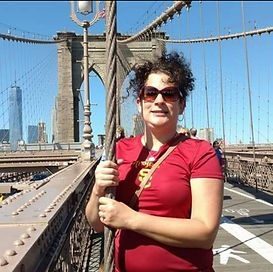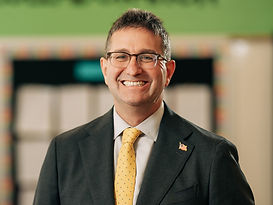GUEST COLUMN.
WHO CAN HANDLE THE TRUTH?
By Donald F. Kettl, professor emeritus and former dean of the University of Maryland School of Public Policy and author of Experts in Government: The Deep State from Caligula to Trump and Beyond

Everyone who has seen the 1992 movie, A Few Good Men—and many people who haven’t—knows that Jack Nicholson famously boomed out a challenge to Tom Cruise, “You can’t handle the truth!” Charged with lying about what happened to cause the death of a Marine, Nicholson told everyone in a crowded courtroom, “I have a greater responsibility than you can possibly fathom.”
It is the special province of experts that they know more than anyone else could about what it really takes to get a job right. But while it’s easy to make these claims, and they’re often accepted without question, holding those experts accountable is an important challenge to governments everywhere.
As I discovered in writing my new, short book on Experts in Government (free to download through the end of January), all expertise is political. In the world of government, we never know for sure anything that’s important, whether it’s the size of the surplus (or deficit) in next year’s state budget or where best to position local fire stations. Such truths are always uncertain. Most government experts might well agree with Nicholson that they have greater responsibility than non-experts could possibly fathom.
Throughout the centuries, whoever has the expertise to define political “truths” has had great political power. The monks in the Dark Ages kept the ages not so dark because they could read and write. That not only gave them great power. It also created a tool that kings through those centuries used to cement their own rule.
Sometimes those who shape the truth have been held in great reverence. A thousand years ago in China, for example, professors received such high esteem that they were carried around by porters in sedan chairs. Not only is that tradition long gone, in the American states today, there’s an ongoing effort to reduce the power of professors by closing offices devoted to diversity, equity and inclusion and by transforming the curricula they teach. Political power always seeks to shape the truth.
Then there’s the question of the level of government that’s the most appropriate to be the repository of the quest for truth. In China, for example, the Confucian tradition holds that truth ought to flow from the top down. Trust in the central government is much higher than in local governments.
In the US, of course, it’s precisely the reverse. Americans trust local governments more than the states, and the states much more than the federal government. Some of this is because of the country’s revolutionary tradition, flowing from the battle of the nation’s founders against the autocratic British king. And some of this is because the nation’s vast diversity – with its political cultures, social patterns, economic drivers, and constitutional system – and its separation of powers makes it impossible for a central government to unilaterally steer the country.
That means truth in the US tends to flow up from the decisions shaped in state and local governments. Indeed, state and local battles are shaping the big debates in American politics—immigration, abortion, economic growth, and climate, among others. It also means that the increasingly contentious quest for the truth and the fragmented system for resolving it combine to make it even harder to build trust in American governmental institutions, even at the local level.
Nicholson is sure he’s right that Cruise’s character can’t handle the truth. That’s because Nicholson’s character, a Marine colonel, is certain that neither Cruise nor anyone else in the courtroom can understand the truth as Nicholson came to define it.
We’re having just as hard a time handling the truth because we struggle with the fact that truth is political and that politics shapes the values that define the truth. And we have a hard time dealing with the deep conflicts over values because of the big conflicts baked into the realities of American federalism.
There are no simple solutions to the quandaries here. But understanding that they exist in the first place is key to grasping the reasons the world of government works the way it does. In that understanding lies hopes for the future.
The contents of this guest column are those of the author and not necessarily those of Barrett and Greene, Inc.
#ExpertsinGovernment #TrustInStateandLocalGovernment #TrustinGovernment #StateandLocalGovernmentManagement #PublicAdministration #StateandLocalGovernmentAccountability #IntergovermentalRelations #StateandLocalManagementandPolitics #CentralGovernmentPower #GovernmentHistory #AmericanFederalism #DonKettl #UniversityofMarylandSchoolofPublicPolicy #AFewGoodMen



































































































